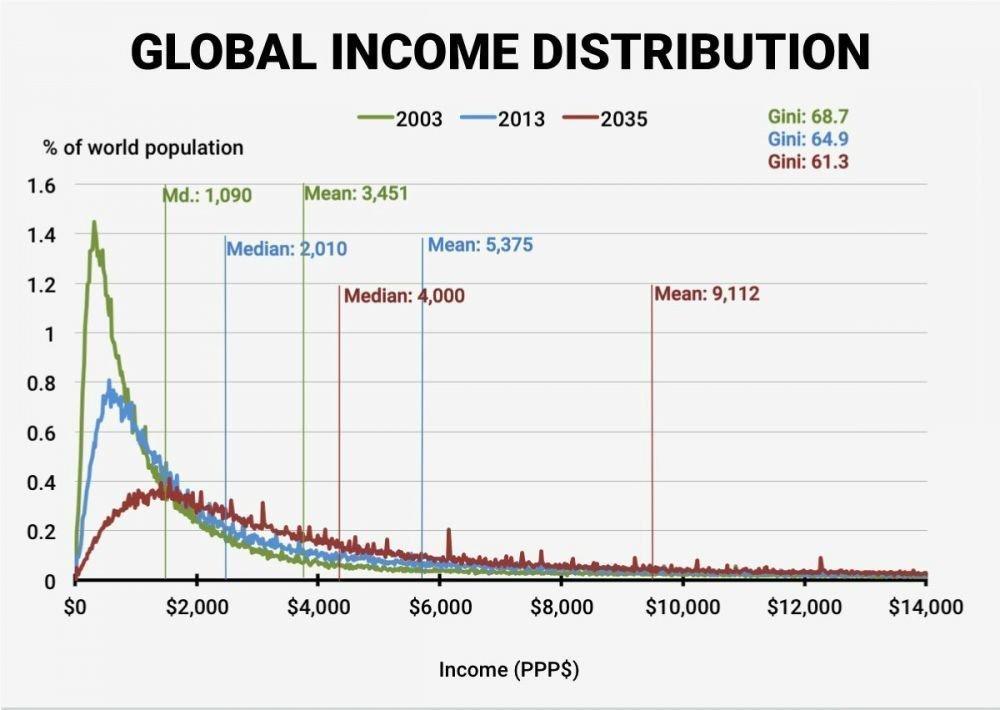The conundrum between consuming more resources to alleviate dire poverty and the need to stop growth to save the planet, is going to need all our combined wisdom and efforts. This article from Reason outlines the issues at stake. 
Source: Business InsiderThere has been a massive increase in wealth throughout the world in the last two centuries. As societies get wealthier, life generally gets safer, not just due to reductions in disease, starvation, and vulnerability to natural disasters, but also due to reductions in political brutalization. People get rights. Roughly 800 million people in the world, many of them in Africa, still live in absolute poverty and experience the kinds of existential challenges that only free markets can solve.
In summary, the piece points out:
- The awesome ability of free markets to improve the lives of the poor.
- A massive increase in wealth throughout the world over the last two centuries.
- The “great enrichment" elicits different responses in different parts of the world. "When I show this graph in Asia," Haidt writes, "the audiences love it, and seem to take it as an aspirational road map… But when I show this graph in Europe and North America, I often receive more ambivalent reactions. 'We can't just keep growing forever!' some say. 'We'll destroy the planet!' say others. These objections seem to come entirely from the political left, which has a history, stretching back centuries, of ambivalence or outright hostility to capitalism.”
- Capitalist prosperity changes human conscience. In pre-industrial societies, people care about survival. As societies get wealthier, life generally gets safer, not just due to reductions in disease, starvation, and vulnerability to natural disasters, but also due to reductions in political brutalization. People get rights.
- Roughly 800 million people in the world, many of them in Africa, still live in absolute poverty and experience the kinds of existential challenges that only free markets can solve. Denying dirt-poor people access to cheap fossil fuel energy, for example, can mean a death sentence to a newborn child on life support in an electric-powered incubator in rural Africa.
- Part of the reason why the Industrial Revolution started in England was that the country had to switch from almost depleted wood to coal as a source of energy. Industrialization, and subsequent enrichment, saved European forests, and it can do so in Africa as well.




Leave your comments
Post comment as a guest